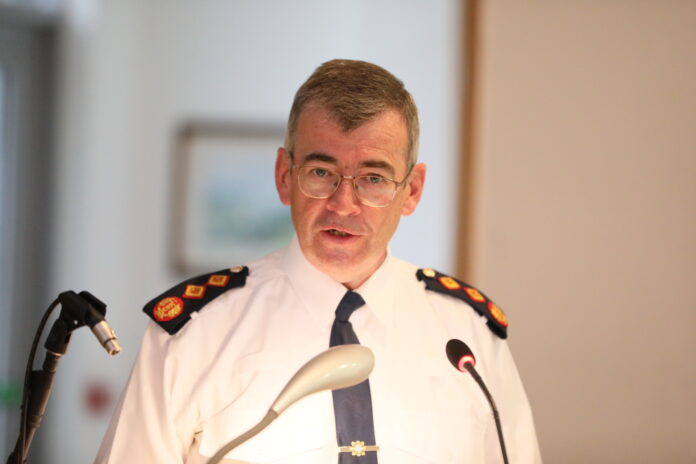GARDA Commissioner Drew Harris has apologised after confirming that a total of 22 emergency calls in Clare did not receive an appropriate response in the period of 2019-2020. The vast majority of these calls related to domestic disturbances.
At the meeting of the Joint Policing Committee (JPC) this week, the Commissioner reiterated an apology he made nationally after the Policing Authority found that 600 emergency calls nationally were cancelled and not correctly dealt with by the force.
The JPC heard that a follow-up procedure was put in place to address the matter and that a new call classification system is being developed.
However, Deputy Violet Anne Wynne, who raised a question with the commissioner about the matter, was critical of the missed opportunity to respond appropriately to the brave decision made by those experiencing domestic abuse to seek help.
In response to a question from the Sinn Fein TD, which was submitted formally before the meeting, Commissioner Harris outlined that 22 incidents in Clare had been reviewed for the period 2019-2022, in the wake of the Policing Authority concerns.
Of these, 14 related were “calls for assistance in domestic settings”. Six of the emergency calls related about person and some related to civil disputes. Two related to mental health matters.
The Commissioner outlined that in 11 incidents no contact was made by Gardai. In seven cases, officers did attend but the calls were not correctly classified on their systems, meaning that follow-ups did not happen as per normal procedure.
In four cases where calls were not correctly classified, a call-back procedure was not warranted.
The Commissioner said that in rural divisions, the cancellation of emergency calls had not been as serious as in urban settings.
He said the cancellations related to “a small number of calls when set against number of incidents in 2020 in Clare division, and to-date in 2021”.
He issued a reassurance on the appropriateness of the Garda response to calls concerning domestic abuse and outlined the follow-up procedure where the majority of those contact had said no further assistance was needed.
“Our system dates back to 1986, it’s very old,” he said. “We will have a new system by November 2022. We have learned a lot from this service failure and these calls being incorrectly classified as cancelled.”
Deputy Wynne welcomed news of the improved system.
“The information around new system for classifying calls is very much welcome,” she said. “Everyone would agree that the old system wasn’t working and wasn’t helpful in these situations.
“In Clare, a lot of communities are rural based and there is the concern that even when victims reach out, because they are so isolated, it’s a bigger ordeal for them to reach out and be able to avail of such help when they do make that call.
“My concerns are around the fact that those calls were misclassified. I would be concerned that they politely said they didn’t need assistance when called back, when that may not have been the case.”
The Kilrush-based representative also noted that since the Policing Authority flagged its original concerns in September, fresh concerns have arisen this month.
“We had new information last week on misclassification and unanswered calls,” she said.
“I hope that those in Clare who reached out are treated with respect and seriousness that is deserved. I would hope that, under the new system, every call is dealt with.”
Speaking to the media after the meeting, Commissioner Harris described the situation as “a service failure”, but insisted that the appropriate response was put in place to address it.
“The issue for us is that there was a service failure in not classifying [calls] properly,” he said. “And therefore there was not the follow through in terms of maintaining contact with the person who made the report. We’ve rectified that by making contact.
“But what I depend upon then is the skill – and these are specialists in the Protective Services Units – in dealing with those victims and building relationships. And what is very clear, across the country is that this has been positive.
“People now know who to contact and who to speak to. And indeed, in some of those cases we’ve had follow through in terms of further support, we’ve provided for individuals.
“So there has been obviously – and we’ve said it ourselves and apologised for [it] – a service failure.
“What we’ve put in place as a means [to address it] is we’ve supported individuals who’ve been reporting domestic abuse, or other serious crimes.”
Commissioner apologises for service failure in Clare emergency calls

online pharmacy buy cipro online no prescription pharmacy
